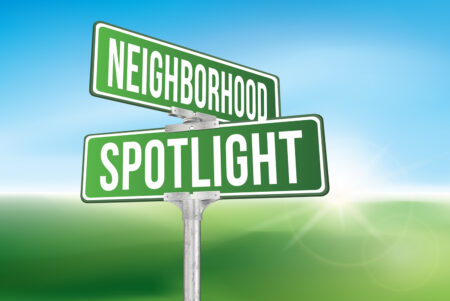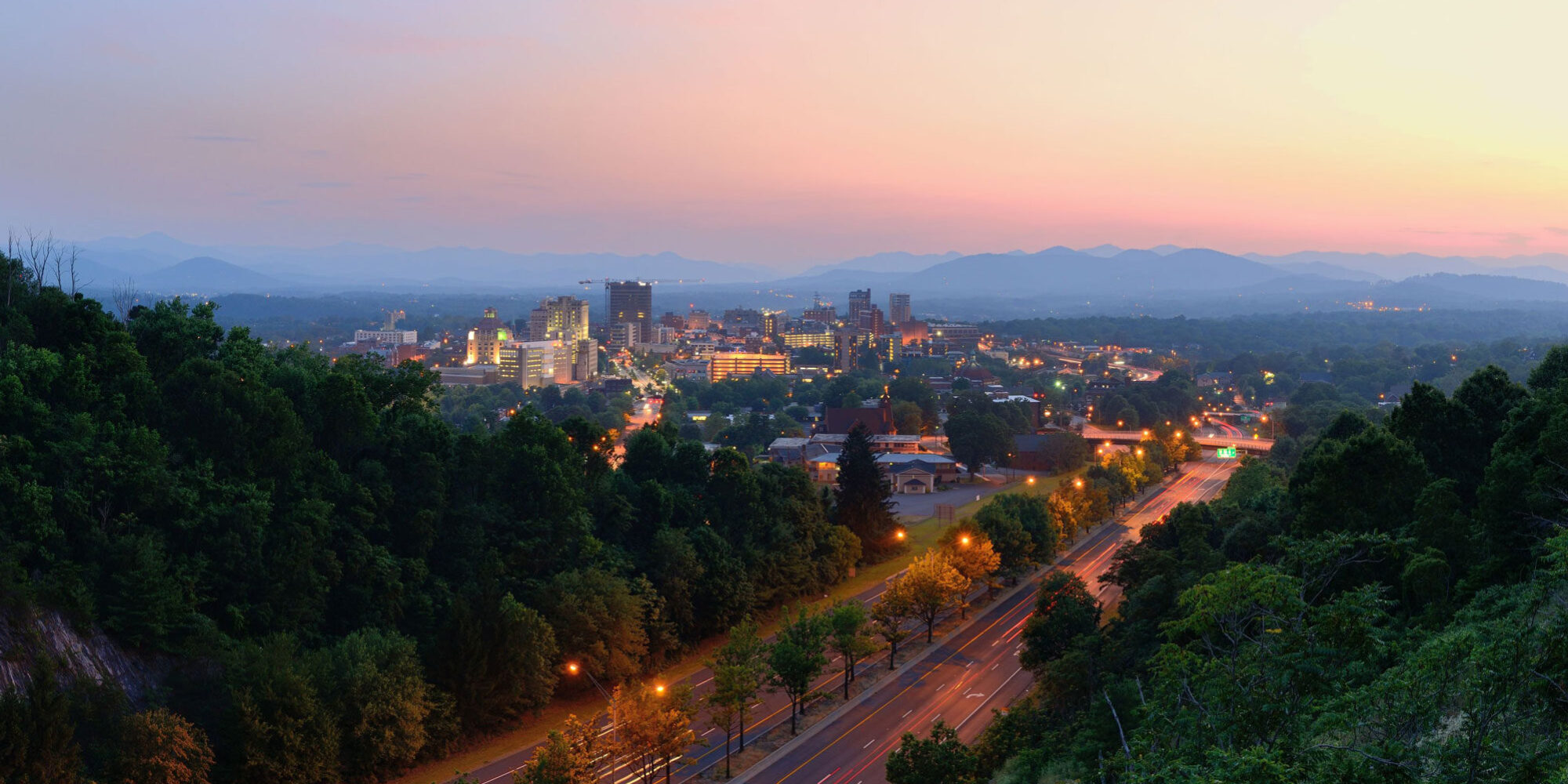Neighborhood Services is dedicated to serving the residents of Asheville because involved, connected neighborhoods are essential for a strong and healthy community. The City of Asheville is committed to building partnerships with residential and business neighborhoods in order to improve the quality of life for everyone who lives, works and visits our community.
Our key objectives include:
- Effective engagement with various residential and merchant neighborhood groups and associations.
- Linking neighborhood organizations and city departments to address service needs.
- Amplifying Council’s strategic priority of Neighborhood & Climate Resilience.
Map of Asheville’s Registered Neighborhood Organizations
The City of Asheville recognizes that not all current or historic neighborhoods of our community are recognized on the Neighborhood Organization Map. The purpose of this map is to be a tool to facilitate relationship building between active resident groups and the City.
To get a list of neighborhoods, click on the black box on this map’s bottom border. Click on Options and download a list in CSV or you can sort lists in ascending and descending order and download.
What is a Neighborhood Organization?
A neighborhood organization is a group of community members who organize, share ideas, and cooperate to improve their neighborhood. In addition to residents, a neighborhood organization includes neighborhood businesses, churches, nonprofits and schools. Truly representative neighborhood organizations will have open meetings and inclusive communications and will respect and address minority concerns. By forming a neighborhood organization, members work toward common goals. With a unified voice, they respond to community concerns, preserve and improve their neighborhood, plan and hold social events and interface with local government and organizations.
Active neighborhood organizations may have elected leaders, voluntary dues, regular or semi-regular meetings, and/or social events aimed at building community.
Is your community ready to become a registered neighborhood organization with the City of Asheville? Register online through the City of Asheville’s Neighborhood Registration Form.
Benefits of becoming a registered neighborhood organization with the City:
- Invites proactive two-way communication between neighborhoods, the City of Asheville and other external organizations looking to reach members of your community
- Recognition on the official Neighborhood Organization Map (located on the Neighborhood Services page), which is used by the City as well as by members of other entities in planning, outreach, and service delivery efforts.
- Inclusion on official contact lists for neighborhood-level public meetings related to projects including development, infrastructure improvements, etc.
- Opportunity to submit a Neighborhood Plan, or Plan on a Page, which defines neighborhood vision and priorities and creates a path for the City to work with neighborhoods on achieving goals that align with the City’s comprehensive plan.
- General recognition and promotion through the City’s engagement outlets, including Neighborhood Spotlight feature articles.
- Relationship building and organizational support
- Facilitated connection with the Neighborhood Advisory Committee with the option to participate in the Festival of Neighborhoods.
- Engagement and technical assistance from City staff; staff can attend regular neighborhood meetings, provide updates on City projects, and help streamline questions and issues that involve multiple City departments.
- Partnership on investment: An organized neighborhood group that stands for the interests of all its residents and stakeholders provides a mechanism to communicate as a collective voice when decisions are being made.
- Eligibility to apply for Neighborhood Matching Grants and to implement neighborhood Street Name Sign Toppers
Neighborhood Matching Grants
The Neighborhood Matching Grants Program helps Asheville’s neighborhood-based organizations fund various improvement projects by providing dollar-for-dollar matching grant of up to $5,000. Find more information on the grant opportunity here.
Neighborhood Plans
Neighborhood planning allows residents to establish a community vision and share insights on what the future of our city’s neighborhoods can be.
A Plan on a Page is a tool designed by individual neighborhoods with technical assistance from the City’s Planning Department and Community Engagement Division and is ultimately reviewed and approved by City staff. The Plan on a Page concept was originally initiated by the City Planning Department with the intention of helping neighborhood groups organize themselves and develop consensus around neighborhood priorities in preparation for the 2018 update of the Comprehensive Plan. Recognizing not all neighborhoods participated in 2018, the City encourages neighborhoods to continue submitting and revising Plans on a Page post-Comprehensive Plan update.
While a Plan on a Page may be the first step for most neighborhoods on the road to community planning, in some circumstances a full Neighborhood Plan or Small Area Plan is created and adopted by City Council.
Check out the current Neighborhood Plans.
Neighborhood Newsletter
Our bi-weekly newsletter provides useful updates and information for neighborhoods.
Neighborhood Volunteer of the Year Awards
The Neighborhood Volunteer of the Year award was initiated in 2017 by the Council-appointed Neighborhood Advisory Committee.
The 2022 award recipients were nominated by members of the community. The Neighborhood Advisory Committee voted unanimously at their October 24 meeting to select the following three recipients for the award.
Angela Young was recognized for her positive influence in the Hillcrest neighborhood, including community event support, food distribution and the organization of a neighborhood council.
Lee Arevian is the current president of the Grove Park Sunset Mountain Association, where he is appreciated for his interpersonal and leadership skills.
Michael Stratton was instrumental in the formation of the Oakley Neighborhood Association in 2021 and has spearheaded efforts including two Open Streets Events and a neighborhood resilience garden.
The Neighborhood Advisory Committee will announce the next call for nominations for the Neighborhood Volunteer Award in 2023.
Neighborhood Spotlight
 Now that you have registered your neighborhood, let’s hear all about you! Contact neighborhoods@ashevillenc.gov to have your neighborhood featured on our City news blog.
Now that you have registered your neighborhood, let’s hear all about you! Contact neighborhoods@ashevillenc.gov to have your neighborhood featured on our City news blog.
West End Clingman Avenue Neighborhood (WECAN)
Do you want to have your neighborhood featured as a Neighborhood Spotlight? Contact us at neighborhoods@ashevillenc.gov.
Get Involved
Through a variety of boards and commissions established by Asheville City Council, citizens can provide input on the policies that shape their government and their city. There are currently more than 40 boards and commissions that advise the mayor and city council on an array of issues. Check out the boards and commissions page for more information.
Contact Information
Kristina Israel, Community Engagement Manager
828-712-4229
Trey Irby, Neighborhood Services Specialist
828-337-5358
